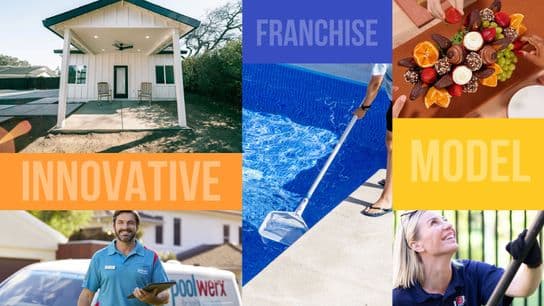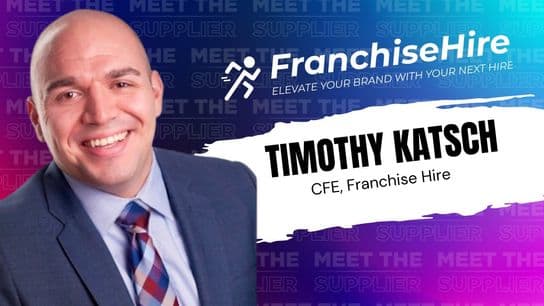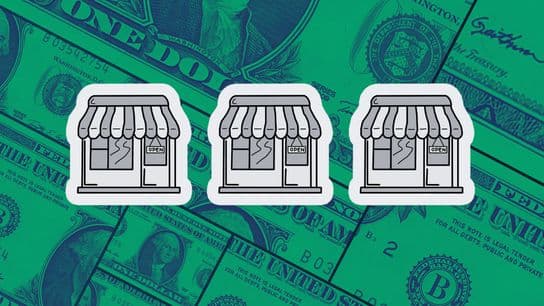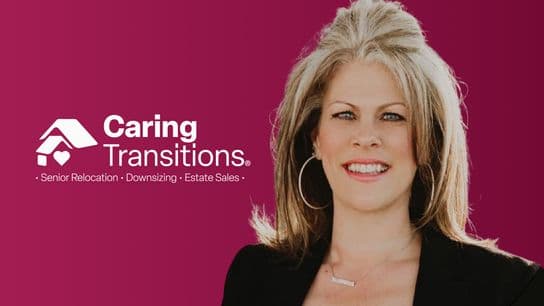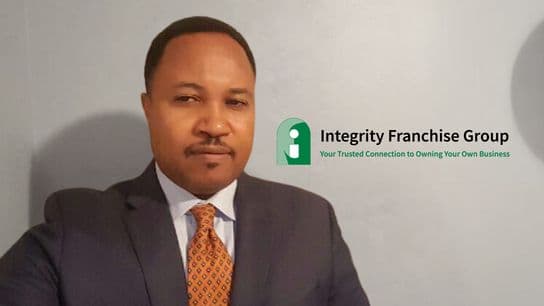What Illinois's Economic Outlook Means for Franchisors
If you’re a franchisor looking to develop your business in Illinois, you’ll want to consider the state’s policy variables and growth rates when scaling your plans.
This month, Alec-Laffer published their annual Economic Competitiveness Rankings, which forecasts a state’s current standing within 15 state policy variables. The report features two different rankings: Economic Outlook — a forecast based on a state’s current standing in 15 state policy variables — and Economic Performance — a retrospective measure based on a state’s performance over a 10-year period from 2008 until 2018. For the state of Illinois, these rankings reveal a lot about where the state economy is going and where there is opportunity for their economy to grow.
- 2020 Outlook Ranking: 47
- 2008–2018 Performance Ranking: 42
The State
As of August 1, 1,553,109 Illinoisans have filed for unemployment as a result of COVID-19. Even after introducing two record-high income tax hikes, the state of Illinois only had $1.2 million in reserves at the start of the pandemic. Not only could the state not afford to offset declining revenues, but aid for struggling small businesses was essentially nonexistent. Many small businesses that have filed for unemployment have said that they’ve experienced lengthy delays, or worse yet, are still waiting to receive their funds.
Similar to the country as a whole, Illinois’ economy is reliant on a mix of industries. As a result of the state-mandated lockdown, the state’s economy shrank by $86.2 billion — $940 million per day— in Q2 alone. With so many of its residents leaving the state or migrating out of Chicago and into the suburbs, Illinois’ economy will likely continue to fluctuate. In an effort to aid economic recovery, Governor Pritzer introduced a “fair tax” that will increase taxes up to 47% on more than 100,000 small businesses as they themselves recover. However, that tax impacts the same businesses that will be looked to for the vast majority of new jobs in the state.
Making Sense of the Data
What does this mean for Illinois’ economy? To start with the Economic Performance report, the index shows that within the past ten years, Illinois has been outperformed by 41 other state economies. The performance index is based broadly on a state’s performance within State Gross Domestic Product, Absolute Domestic Migration and Non-Farm Payroll Employment. The category that most negatively impacted the state’s economic performance was their Absolute Domestic Migration status. Nearly 900,000 residents migrated out of Illinois over the last 10 years, a number that is likely to increase as people choose to move away from cities like Chicago to escape the virus or seek more space. Illinois’ State Gross Domestic Product was left with a median ranking of 31, seeing only 33.9% growth.
The Economic Outlook tells another story about the Illinois economy. The ranking is based on a state’s current standing in 15 state policy variables. Each of these factors, ranging from sales tax burden to state minimum wage, is influenced directly by state lawmakers through the legislative process. In this ranking, Illinois appears at No. 47. Ranked near the very end in many of the categories, it’s likely that Illinois economic performance will continue to struggle in the years ahead.
The report indicates that, generally speaking, states that spend and tax less experience higher growth rates than states that spend and tax more. While this is an important finding for entrepreneurs looking to start their own business, it shouldn’t discourage them from investing in their dream franchises if they're in a market with a slower growth rate. In states like Illinois, whose economies have been adversely impacted by the pandemic, individuals will be exploring career alternatives.
When it comes to deciding where franchisors should develop their brand, it’s always important to look at the complete picture of what the region has to offer. Historically, Illinois has been ranked incredibly low by the Alec-Laffer report, and if its residents continue to move away from the Lincoln State it’s likely it will continue to struggle even after the pandemic.
Franchise Growth Plans
So what should franchisors do with this information? Though most franchisors take a shotgun approach — meaning wherever a prospect franchisee inquires, the franchisor will typically entertain that marketplace — the strategy of looking at these overall policies can help them scale their business at a more efficient rate. With that said, the findings within the report should not be the deciding measure for franchisors, but they should play a role in the decision.
Hounds Town USA
- Current units in state: 5
- Growth capacity in state: 20
- Total jobs created at max growth capacity: 200
Linton Dowling, marketing director of Raintree*, the franchise marketing agency that represents doggy daycare franchise Hounds Town USA, said that Illinois is primed and ready for growth.
“When picking new markets, we first look at their vicinity to established markets. This means we’re able to increase brand awareness or recognition with a limited budget. Also, for an emerging brand like Hounds Town USA, franchise disclosure document registrations is a serious factor. The costs, time for registration and other legal considerations are taken into account.
When we’re looking to grow our footprint in a new market, the natural first step is to look at dog-to-human ratio. We then move into the economic prospects of that state and demographics,” said Linton.
“If we’re trying to project growth potential, we look at a number of economic data points. Employment rate, apartment/housing booms, employment growth and interstate population growth. Young people move a lot, and of course they bring their dogs with them. Dogs need the support of a pack mentality just like we need to build a friendship circle.”
360° Painting
- Current units in state: 5
- Growth capacity in state: 15
- Total jobs created at max growth capacity: 75
Joel Gotshall, vice president of painting service franchise 360° Painting, notes that Illinois meets all the brand's key expansion requirements, making it a state that’s well-poised for growth.
“When looking into markets for potential growth, 360° Painting looks at markets with a flexible minimum of 30,000 households with incomes over $75,000 per year and at least 300,000 in population,” said Gotshall.
ProLift Garage
- Current units in state: 1
- Growth capacity in state: 16
- Total jobs created at max growth capacity: 80
Similarly, David Raymond, vice president of operations with the garage door repair and maintenance franchise ProLift Garage, says that his brand’s expansion requirements are dependent on population and median income — and Illinois fits the bill.
“When looking into markets for potential growth, ProLift Garage Doors looks at population, the amount of single-family homes and median household income,” said Raymond.
Renew Crew
- Current units in state: 1
- Growth capacity in state: 15
- Total jobs created at max growth capacity: 15
Will Faulkner, brand lead of pressure washing franchise Renew Crew, notes that, based on Illinois’ demographics and climate, it’s an ideal state for growth targeting.
"All over the country, the $885-million outdoor living industry has shown significant growth as more and more homeowners want to expand their living space by taking it outside," said Faulkner. “Renew Crew takes the number of owner-occupied housing units and dual-income households — as well as weather — into consideration when determining target markets.”
Famous Dave’s*
- Current units in state: 8
- Growth capacity in state: 15
- Total jobs created at max growth capacity: 750
Al Hank, senior vice president of operations of BBQ franchise Famous Dave’s, notes that the brand is eager to grow and that Illinois presents a prime opportunity for continued development.
"Given the recent trends over the past two years and the resiliency of the Famous Dave's brand throughout the pandemic, growth is the focal point for us moving forward,” said Hank. “We're excited to enter new markets and enter into new territories by utilizing data, demographics and traffic to find the best locations possible."
Maid Right
- Current units: 0
- Growth capacity in state: 15
- Total jobs created at max growth capacity: 75
Tracey Felts, director of franchise development for Premium Service Brands, parent company of residential and commercial cleaning franchise Maid Right, notes that Illinois checks the right boxes for targeted growth opportunities.
“When identifying markets for growth, Maid Right considers a number of factors: population, how many homeowners are considered upper-middle class and proximity to other smaller cities,” said Felts.
Renovation Sells*
- Current units: 1
- Growth capacity in state: 8
- Total jobs created at max growth capacity: 8, plus subcontracted roles
Michael Valente, CEO of home renovation franchise Renovation Sells, notes that his brand is primed and ready for growth and that he’s excited about Illinois in particular.
“As we embark on franchising our opportunity, we have the benefit of a business model that fills a gap in the marketplace as well as ample territory availability across the country. 2020 has been an interesting year — that's for sure — but it's proven how resilient our business model is. We're excited to expand in Illinois and also to establish a footprint in metros that are experiencing a real estate surge as millennials are reaching home-buying age,” said Valente. “We also look at communities that have a large amount of older, dated homes that can greatly benefit from simple renovations to increase their value in the marketplace.
Franchise Brands Headquartered in Illinois
*This brand is a paid partner of 1851 Franchise. For more information on paid partnerships please click here.


